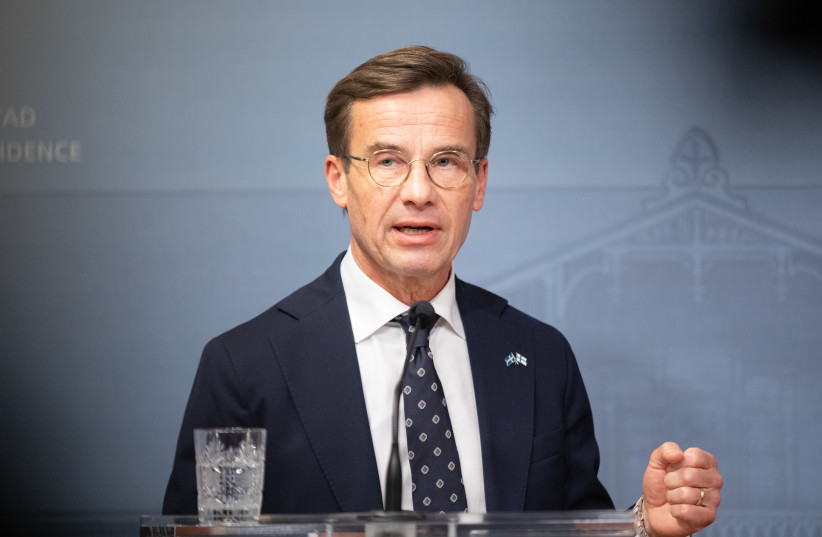The anticipated ratification of Sweden’s accession to the North Atlantic Treaty Organization gained greater substance this past week with the address delivered by Turkish President Tayyip Erdogan during the alliance summit in Vilnius. Sweden’s membership will enhance the allies’ capacity to bolster their naval force in the Baltic Sea and in neighboring Finland.
The speech in which Erdogan stated that he would work for Sweden’s accession was an achievement for NATO Secretary General Jens Stoltenberg and for Swedish diplomacy. Sweden and Turkey have collaborated closely on addressing Turkey’s demands, resulting in constitutional and legal changes in Sweden. The cooperation extended to counterterrorism efforts and a new bilateral security agreement was established. Furthermore, Sweden actively supports initiatives to renew EU membership talks for Turkey and is taking these steps to pave the way for its own accession to NATO.
Kremlin spokesperson Dmitry Peskov, as reported by Reuters, has criticized European leaders for not understanding the consequences of NATO’s expansion toward Russia’s borders. Last year he told Sky News that such a move would result in having to “make our western flank more sophisticated in terms of ensuring our security.”
The pursuit of NATO membership by Sweden and Finland, traditionally non-aligned countries, has resulted in significant changes in their military policies. Both countries are located in the Baltic Sea region, which has seen a rise in military activity since 2014, primarily due to concerns over Russia’s security threat.
Sweden became aware of Moscow’s growing aggravation after Russia’s simulated nuclear attack near Stockholm in 2013. To address security concerns, Finnish, Swedish, and Norwegian air forces regularly engage in air combat training, simulating various scenarios. In parallel, and as part of a joint training exercise in the Stockholm archipelago, Sweden and the United States tested their interoperability and shared valuable experience. Sweden’s possession of strategic terrain, such as Gotland in the Baltic Sea, further reinforces the potential for increased strategic coordination.

The Baltic States’ NATO membership has removed the central misalliance in defense planning in the region, which would also be under Sweden’s responsibility. The investigation into suspected sabotage of the Nord Stream 2 has revealed traces of underwater explosives in the samples taken from a boat, according to a letter from German authorities. German investigators are still working to determine the boat’s exact route and believe it was rented with the intention of concealing the identities of those involved. The conclusions of the independent Swedish investigation team, operating separately from Germany, are yet to be determined.
Sweden in the Arctic
Sweden’s entry into NATO has significant implications for the Arctic region and the defense of the Nordic area. NATO will now be able to strengthen its presence and enhance coordination in this strategic region.
Formal commitment to NATO will streamline aspects of cooperation, but even without such commitments, Sweden and Finland already engage in exercises, consultations, and coordination with NATO countries. The largest increases in defense spending were observed in Finland (+36%) and Sweden (+12%), indicating a growing alignment with NATO practices.
In terms of defense capabilities, Sweden’s defense industry has produced several weapons including the Gripen aircraft which form the backbone of the Swedish Air Force. While Sweden still relies on EU and US-manufactured helicopters and C-130s, its domestic defense industry also contributes significantly.
The integration of Sweden and Finland into NATO operations is well underway, with their military officers now represented alongside NATO’s officers at the multinational headquarters in Mons, Belgium. This level of integration reflects a close alignment with NATO’s member states.
Sweden and Finland’s official NATO membership will mark a significant shift in the regional security landscape. It will enable NATO to bolster its presence in the Arctic and Nordic regions while Sweden and Finland benefit from enhanced defense coordination and interoperability. Despite not yet being formal members, the Scandinavian countries have already strengthened their ties to NATO, reinforcing their commitment to regional security.
The writer is a research fellow at the Europa Institute at Bar-Ilan University and a research affiliate at the Center for Cold War Studies at the University of Southern Denmark.
